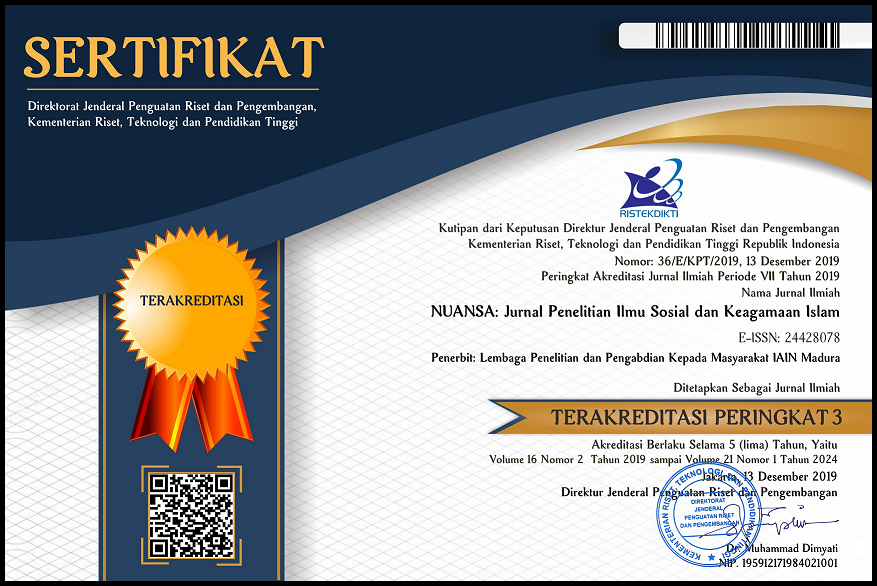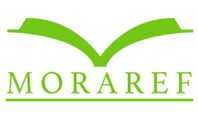PENGEMBANGAN TEKNIK PENILAIAN CATEGORIZING GRID UNTUK MELATIHKAN KECAKAPAN MENGANALIS PADA MATAKULIAH VOCABULARY I
 Abstract views: 124
,
Abstract views: 124
,
 PDF downloads: 192
PDF downloads: 192
Abstract
Analysis skill is advance cognitive skill that the students must have in their learning, including in Vocabulary I. It studies how the assessment forms of categorizing grid technique which can practice students’ skill in analyzing. After researched, tested definite sample, revised based on expert’s suggestion, as well as the implementation, there is a finding that the technique of assessment is valid and good technique. Assessment technique develop to support learning activity in Vocabulary I in “compound nouns” topic using categorizing grid to train students’ skill in analyzing is acceptable. The proofs are: the assessment running well, there are solutions for the obstacles during the assessment activity, students’ activity running well, students give positive response.
Downloads
References
Ahern, Rindell. 1999. Applying Inquiry-Based and Cooperative Group Learning Strategies to Promote Critical Thinking . Journal of College Science Teaching (JCST).
Ainin, Moh. 2013. Penelitian Pengembangan dalam Pembelajaran Bahasa Arab. Jurnal Okara. Vol 2, Tahun ke VIII.
Angelo, Thomas. A Classroom Assessment Technique: A Handbook for College Teachers. San Fransisco: Jossey-Bass Plublisehers
Arikunto, Suharsimi. 2002. Prosedur Penelitian. Jakarta: Rineka Cipta.
Arikunto, Suharsimi. 2005. Dasar-Dasar Evaluasi Pendidikan. Jakarta: Bumi Aksara.
Borg, W.R. and Gall, M.D. 1983. Educational Research: An Introduction. London: Longman, Inc.
Borich, G.D. 1994. Observation Skills for effective Teaching, (Englewood Cliffs: Merrill Publishers.
Dick, W. & Carey, L. 1990. The Systematic Design of Instructional. Third Edition New York: Harper-Colin Publishing
Hamdani. 2011. Strategi Belajar Mengajar. Bandung: Pustaka Setia
Latief, Moh. Adnan. 2012. Tanya Jawab Metode Penelitian Pembelajaran Bahasa Malang: UM Press.
Muslich, Masnur. 2008. KTSP: Pembelajaran Berbasis Kompetensi dan Kontekstual Jakarta: Bumi Aksara.
McTighe & Schollenberger. 1991. Why Teach Thinking? A Statement of Rational, dalam A.L Costa (Ed). Developing Mind: A Resource Book for Teach Thinking. Alexandria: Association for Supervision and Curriculum Development.
Nur dan Wikandari. 2008. Pengajaran Berpusat Kepada Siswa dan Pendekatan Konstruktivis dalam Pengajaran. Surabaya: PSMS Unesa
Nurhadi, dkk. 2004. Pembelajaran Kontekstual dan Penerapannya Dalam KBK Malang: Universitas Negeri Malang.
Oxford, Rebecca L. 2008. Hero with a Thousands of Faces: Learner Autonomy, Learning Strategies and Learning Tactics in Independent Language Learning. Toronto: Multilingual Matters
Redhana dan Liliasari, 2008. Program Pembelajaran Keterampilan Berpikir Kritis. Forum Pendidikan, 27 (2)
Seals, Barbara B. & Richey, Rita C. 1994. Teknologi Pembelajaran: Definisi dan Kawasannya. Penerjemah Dewi S. Prawiradilaga dkk. Jakarta: Kerjasama IPTPI LPTK UNJ
Sudijono, Anas. 2005. Pengantar Evaluasi Pendidikan. Jakarta: PT Raja Grafindo Persada
Sudrajat, Akhmad. 2010. Kemampuan Menganalisis dalam Pembelajaran. Tersedia dalam www.tentang pendidikan.html. Diakses pada 11 Maret 2014
Sugiyono, 2010. Metode Penelitian Pendidikan pendekatan kuantitatif, Kualitatif dan dan R&D. Bandung: Alfabeta
Thornburry, Scott. 2002. How to Teach Vocabulary.Essex, England: Pearson Education Limited
Zaini, Hisyam, dkk. 2002. Strategi Pembelajaran Aktif Di Perguruan Tinggi. Yogyakarta: CTSD Press
http://www.uwsp/cognitif.htm diakses 11 Maret 2014
http://navelmangelep.wordpress.com/2012/04/01/penelitian-pengembangan-development-research/
The journal operates an Open Access policy under a Creative Commons Attribution-NonCommercial 4.0 International License (CC-BY-NC) 
Authors who publish with this journal agree to the following terms:
- Authors retain copyright and grant the journal right of first publication with the work simultaneously licensed under a Creative Commons Attribution License that allows others to share the work with an acknowledgement of the work's authorship and initial publication in this journal.
- Authors are able to enter into separate, additional contractual arrangements for the non-exclusive distribution of the journal's published version of the work (e.g., post it to an institutional repository or publish it in a book), with an acknowledgement of its initial publication in this journal.
- Authors are permitted and encouraged to post their work online (e.g., in institutional repositories or on their website) prior to and during the submission process, as it can lead to productive exchanges, as well as earlier and greater citation of published work.






















